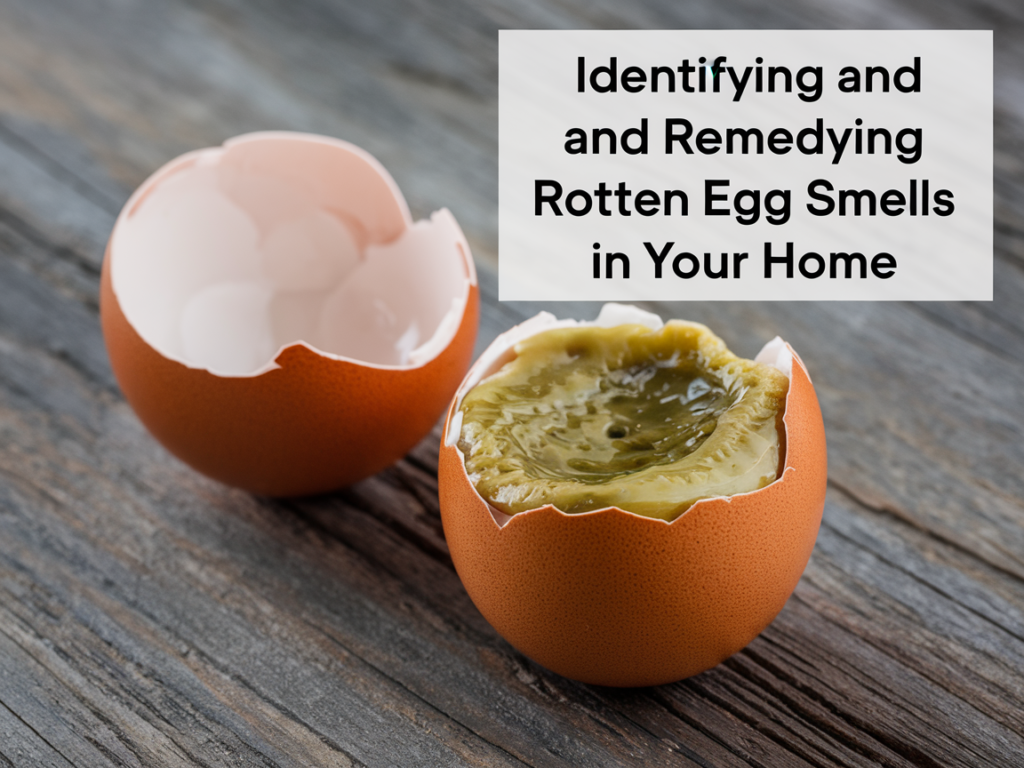
The presence of a rotten egg smell in your house can be unpleasant and concerning. This distinct odor is often associated with the presence of hydrogen sulfide gas, which has a pungent smell similar to rotten eggs. Understanding the causes of this smell and taking appropriate actions as a DIY homeowner can help you address the issue. Let’s explore the potential causes and possible remedies for rotten egg smells in your home.

1. Plumbing Issues
One common cause of rotten egg smells in the house is plumbing-related problems. The buildup of hydrogen sulfide gas can occur in your plumbing system, particularly in areas where water is stagnant or not frequently used. This can happen in drain traps, sewer lines, or water heaters. To tackle this issue, consider the following steps:
- Run water in infrequently used drains: If you notice the smell in a particular drain, such as in a guest bathroom or basement, run water through the drain for a few minutes to flush out any stagnant water and clear the pipes.
- Flush your water heater: Sediments in the water heater can create a breeding ground for bacteria that produce hydrogen sulfide gas. Follow the manufacturer’s instructions to flush and clean your water heater periodically.
- Check for plumbing leaks: Inspect your plumbing system for any leaks or damage that may be causing the odor. Fixing leaks promptly can help prevent the buildup of stagnant water and associated smells.
2. Sewer Gas Leaks
Another potential cause of rotten egg smells in the house is sewer gas leaks. Sewer lines can develop cracks, blockages, or faulty seals, leading to the release of foul-smelling gases. To address this issue, consider the following steps:
- Check for sewer line issues: If you suspect a sewer gas leak, contact a professional plumber to inspect your sewer lines and identify any leaks or damage. They can provide guidance on repairs or replacements as needed.
- Install or maintain sewer line traps: Sewer line traps, such as a P-trap, are designed to prevent sewer gases from entering your home. Ensure these traps are properly installed and maintained, as a dry or damaged trap can allow odors to escape. Running water periodically through drains and fixtures can help maintain the effectiveness of these traps.

3. Natural Gas Leaks
In rare cases, a rotten egg smell in the house could indicate a natural gas leak. Natural gas suppliers add a chemical called mercaptan to give natural gas its distinct odor, resembling that of rotten eggs, to aid in leak detection. If you suspect a gas leak, it’s crucial to prioritize safety:
- Evacuate the premises: If you smell a strong gas odor, leave the house immediately, ensuring everyone’s safety. Do not operate any electrical switches or appliances that could generate sparks.
- Call your gas utility provider: Contact your gas utility provider from a safe location to report the suspected gas leak. They will guide you through the necessary steps and dispatch a professional to address the issue.
- Follow professional advice: Gas leaks require immediate attention from professionals who are trained to handle gas-related emergencies. It’s crucial to follow their instructions and refrain from attempting DIY repairs in such situations.
Remember, if you suspect a gas leak, always prioritize safety and rely on professional expertise to address the issue promptly.
4. Other Possible Causes
While plumbing issues, sewer gas leaks, and natural gas leaks are common causes of rotten egg smells in the house, there may be other potential sources to consider. These can include:
- Dead animals: A decomposing animal, such as a rodent or bird, in your attic, crawl space, or walls, can produce a foul odor. Identifying and removing the source is essential in such cases.
- Water contamination: In rare instances, contaminated water sources may emit a sulfur-like smell. If you suspect water contamination, contact your local water utility or a water testing laboratory to investigate and address the issue.
Rotten egg smells in your house can stem from various causes, including plumbing issues, sewer gas leaks, natural gas leaks, or other sources. As a DIY homeowner, you can take certain steps to address plumbing-related issues, such as flushing drains and water heaters or checking for leaks. However, when it comes to sewer gas leaks or suspected natural gas leaks, it’s essential to rely on professional expertise for safety reasons. Promptly addressing the source of the smell, whether through DIY measures or professional assistance, can help restore a pleasant and odor-free environment in your home.
As an Amazon Associate we earn from qualifying purchases through some links in our articles.



